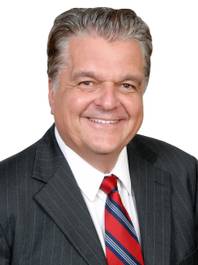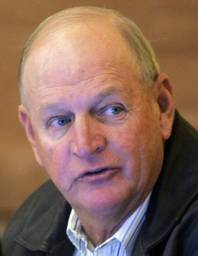Wednesday, April 11, 2012 | 2 a.m.

Steve Sisolak

Tom Collins
Sun coverage
Residents of unincorporated Clark County are, in effect, subsidizing some services that government provides all Southern Nevadans, including citizens of Henderson, Las Vegas, North Las Vegas and other smaller communities, according to a new county report.
Courts, elections, public defenders and prosecutors, social services and the county’s public hospital are all paid for through property taxes collected across the region. But when that revenue falls short, it’s only taxes paid by residents of unincorporated Clark County that make up the difference.
The additional costs have risen sharply — from $37 million in 2009 to $64 million in 2010 and $84 million in 2011, according to the report.
The $84 million in additional costs in 2011 broke down this way: About $34 million supported services provided to residents of unincorporated towns such as Sandy Valley, Laughlin or Searchlight. The other $50 million paid for services used by residents of Las Vegas, North Las Vegas and Henderson.
That imbalance doesn’t mean county taxpayers pay more in taxes. It does mean, however, that Clark County has had to cut more from other areas of its budget to pay for services used by everyone, including the county jail, assessor, coroner and more.
The report comes as Southern Nevada’s cities are struggling to balance their budgets. The city of Las Vegas will tap reserves during the coming year. And this week, debt-rating agency Fitch downgraded the city’s financial outlook from “stable” to “negative,” citing, among other things, rising police costs.
Meanwhile, North Las Vegas, the most troubled financially of the local governments, has floated the idea of joining its police department with Metro as a cost-saving measure.
For the county, which benefits from the wealth of the Strip, solutions aren’t easy either. Over the last few years, it has cut $230 million in expenses. It has negotiated with the firefighters union and won relatively large concessions in wages and benefits.
(Though it provides most of Metro’s funding, the county does not negotiate with the police union; the sheriff and his staff do.)
The county has a budget surplus of about $92 million, representing 7.8 percent of its budget. It could cut into that, but that would only be a one-time solution to an ongoing problem.
Carole Vilardo, longtime president of the Nevada Taxpayers Association, which is typically a conservative voice on tax matters, said if the county can prove that none of its services are extravagant and it has looked hard at its surplus and cut where it could, “the case can be made” that it might increase property taxes by “1 or 2 cents.”
An increase of 1 or 2 cents per $100 of assessed valuation on a home assessed at $100,000 would add $10-$20 per year to a property tax bill.
The property tax rate that helps offset the expense of regional services has not risen for the last four years, Vilardo said. Meanwhile, assessed valuations have decreased to near-record lows, leaving property tax revenue far below where it was five years ago.
Of course, that’s a big part of the reason local governments are in such a bind. More people might be spending money on the Strip, but property taxes still appear to be declining. Additional revenue would help.
Such an increase would only require approval by the Clark County Commission.
How would the idea play with commissioners?
“People can’t afford any more taxes. They’ve done everything they can to save,” Commissioner Steve Sisolak said. “If we need to fill a budget gap, we’re going to cut more. People wouldn’t support a tax, and I don’t support one either.”
Commissioner Tom Collins said he tried to get the commission to approve a 2-cent property tax hike for regional services about five years ago “when times were good.”
“It would have solved the problems back then, and right now when property values are down is the best time to put that on because people are still paying less than they were before,” he said.
Collins considers the idea moot because he believes state lawmakers in 2013 will update the state tax formula to address some uneven tax allotments.
“There will be a change that should bring into balance more of the responsibilities with funding of the various government bodies,” he said.
That would represent a big change in how the state has operated in the last few years. The county’s internal report says that during the last legislative session in 2011, state lawmakers shifted costs and reduced funding, hurting Clark County even more.
The result? The 900,000 unincorporated Clark County taxpayers “fund an even greater share of countywide services since additional funding from incorporated city taxpayers is obviously not forthcoming.”

Join the Discussion:
Check this out for a full explanation of our conversion to the LiveFyre commenting system and instructions on how to sign up for an account.
Full comments policy